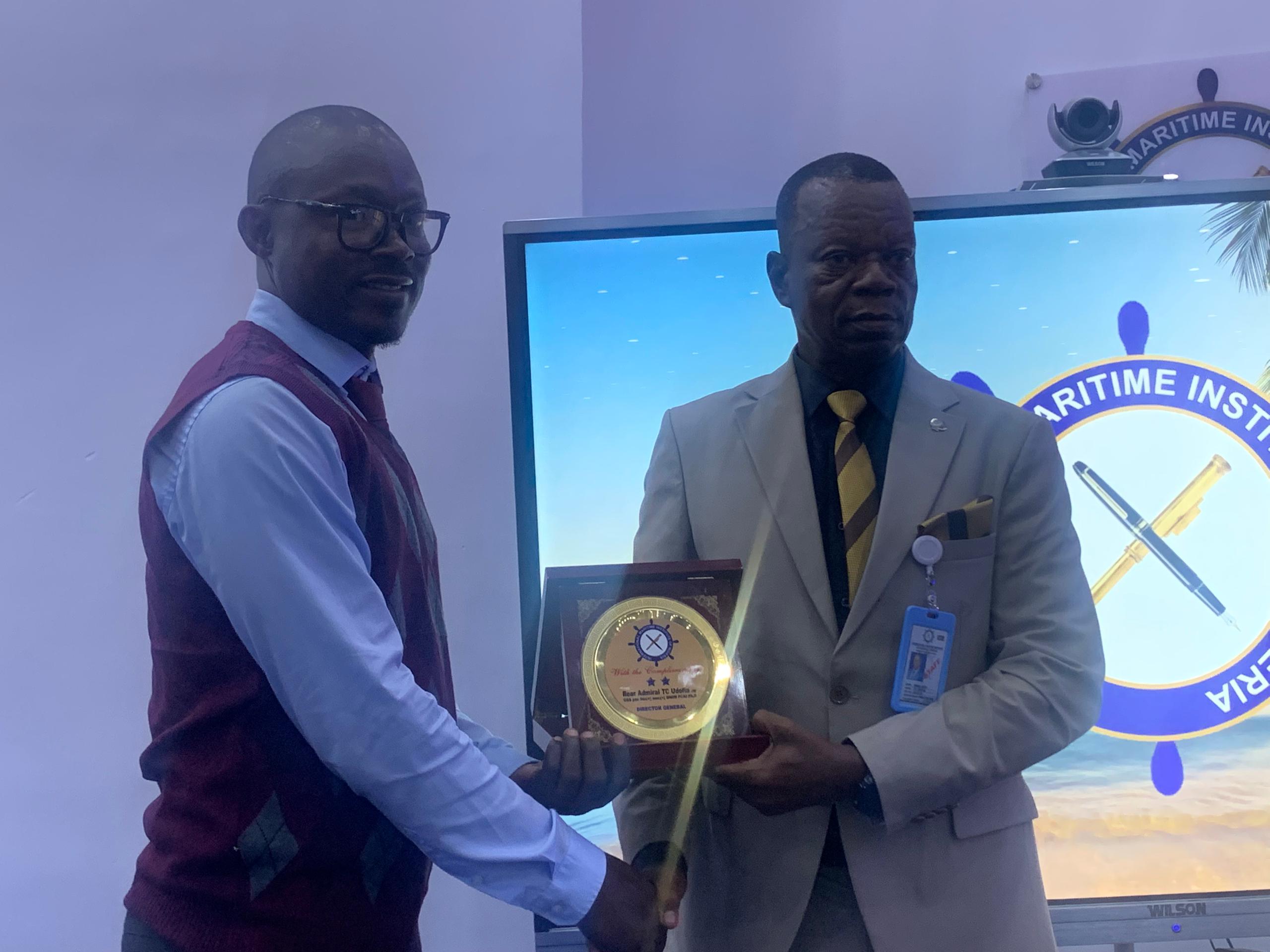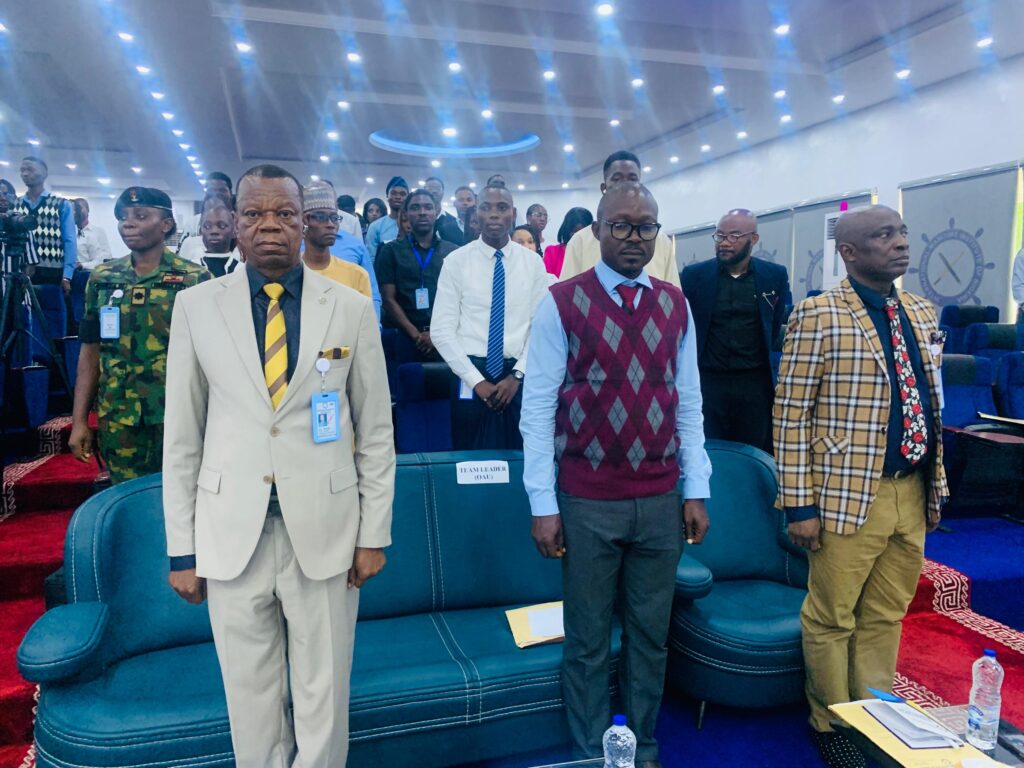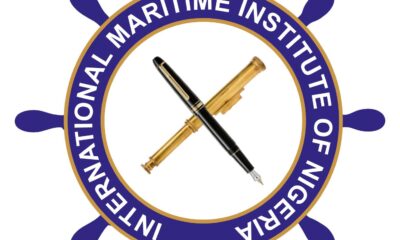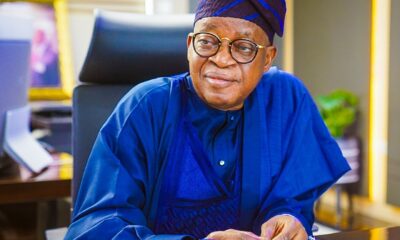Edaucation
IMION hosts OAU International Relations Students on educational tour

BY EGUONO ODJEGBA
In a landmark event aimed at fostering academic collaboration and deepening maritime knowledge among Nigerian students, the International Maritime Institute of Nigeria (IMION), recently played host to the 300level students of International Relations of Obafemi Awolowo University (OAU), Ile-Ife, for an intensive educational visit to it institute.

Rear Admiral Thaddeus Udofia (Rtd) , Director General, International Maritime Institute of Nigeria(IMION) ; Dr Ibikun David, Lecturer Obafemi Awolowo University, Ile Ife and Commodore Isa Ahmed, Director of Administration, IMION during an educational visit of OAU 300 level International Relations students to the Institute in Lagos on Wednesday
The tour, organised under the sponsorship of OAU’s Department of International Relations featured lectures, facility tours, and interactive sessions with maritime professionals.
Addressing the students,the Director General of IMION , Real Admiral Christopher Thaddeus Udofia (rtd) , emphasised the importance of understanding Nigeria’s critical role in the global maritime landscape.
The DG highlighted the critical link between international diplomacy and maritime security, describing the students as future ambassadors, analysts, policymakers, and global leaders. He urged them to see their academic pursuit not in isolation, but as a powerful tool in shaping Nigeria’s maritime future.
He stressed that Nigeria’s foreign policy in the Gulf of Guinea places maritime security and regional cooperation at its core, aimed at combating piracy, enhancing trade, and protecting marine resources.
Speaking futher, he emphasised on how IMION has contributed to national development through research, benchmarking, capacity building, and strategic partnerships. He revealed that the Institute has trained personnel across the Nigerian Armed Forces, Customs, Immigration, and other maritime-focused MDAs, aligning with both global maritime trends and Nigeria’s local priorities.

“ About 90% of the global trade carried is by sea. It is only a safe and secured maritime environment that can guarantee effective and sustainable global trade through the sea. Nigeria’s foreign policy in the Gulf of Guinea prioritizes enhancing maritime security and safety, reflecting the region’s importance for global commerce, oil, fishing, and marine resource management.
“The maritime domain is vast, dynamic and filled with opportunities. From naval diplomacy and ocean governance to climate security and global commerce your future may very well sail on these waters. Let this visit ignite your curiosity, deepen your understanding and inspire you to engage with maritime affairs not as bystanders, but as stakeholders.
“Overall, Nigeria’s foreign policy in the Gulf of Guinea reflects its commitment to promoting peace, security, and economic cooperation in the region, recognizing the strategic importance of the Gulf for global commerce and national interests.
“You, our guests from Obafemi Awolowo University, are not just students, you are future ambassadors, analysts, policymakers and global leaders. Your course in International Relations is deeply intertwined with maritime affairs – from trade routes and naval diplomacy to environmental policy and coastal development.”
Dr Ifesinachi Okafor-Yarwood, a lecturer at the School of Geography and Sustainable Development, University of St Andrews , who gave a paper presentation on “Nigeria’s Foreign Policy and Maritime Security in the Gulf OF Guinea “ said that Nigeria’s vast ocean resources, which contribute significantly to the country’s economy, are under threat from various maritime security challenges
According to Dr. Okafor-Yarwood, a renowned expert in maritime security, these challenges include illegal, unreported, and unregulated fishing, piracy, maritime trafficking in narcotics, weapons, and human trafficking, environmental degradation, and cyber threat.
She revealed that piracy, which was previously rampant in the Gulf of Guinea, has seen a significant reduction in recent years, but still remains a concern. She also noted that Nigeria has made significant progress in combating piracy, but the threat still exists, particularly in adjacent countries.
To address these challenges, Dr. Okafor-Yarwood emphasised the need for strengthened cooperation and improved legal frameworks, enhanced capacity and training for maritime security agencies, and tackling the root causes of maritime insecurity. She also stressed the importance of collaborating with coastal communities and addressing the social and economic impacts of maritime insecurity.
Also, Dr. David Ibukun, a lecturer at the department commended the Institute for its groundbreaking research and innovative solutions to address the complex challenges facing Nigeria’s maritime domain.






























